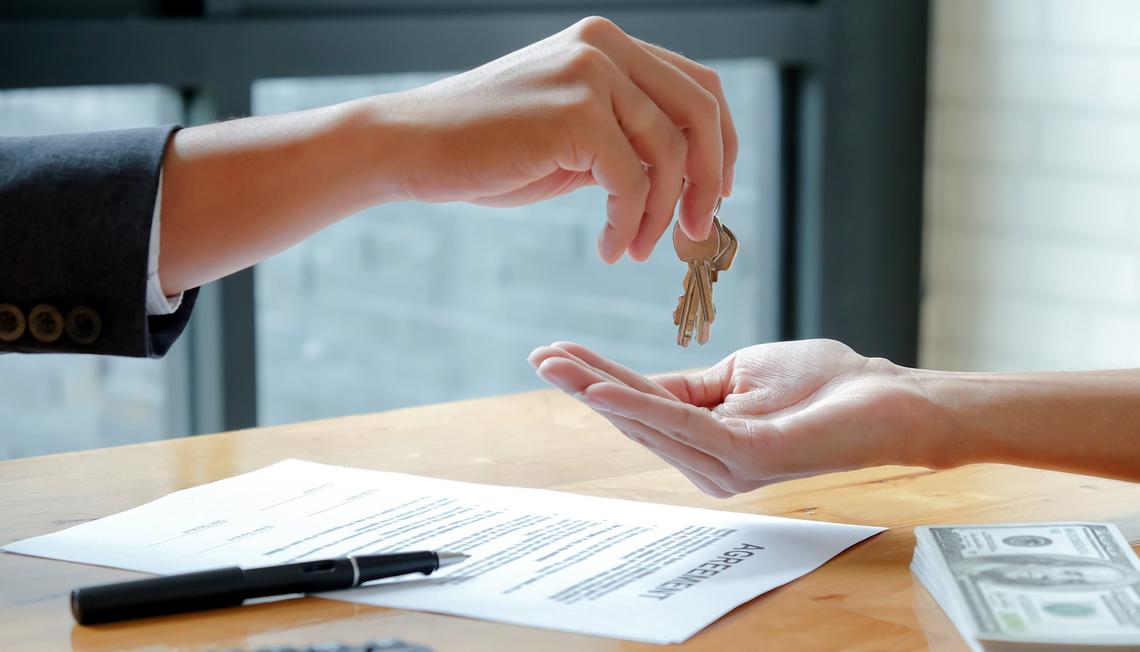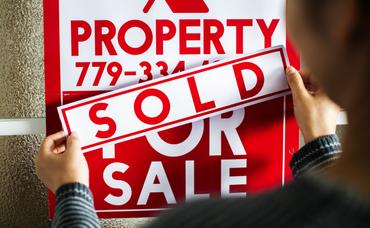It’s one of the classic dilemmas that home owners face when they realize that they are outgrowing their current home: “Can I buy another house before I sell mine?”
When you are interested in buying and selling a home at the same time, it’s called being a move-up buyer. Moving up to a new home can be a very exciting scenario, as it offers you the opportunity to “trade up” to a house that is potentially more valuable than your current property. However, there are some common move-up buying mistakes that can cost you a lot of time, money and stress during the process. And that’s why so many people ask whether or not they can buy a house before finalizing the sale on their current home — because they don’t want to fall into one of these traps and cost themselves time and money.
With that being said, buying a house before selling your current home might be the right move for you — as long as you consider these 4 key factors:
1. The Importance of your Home Value
You might be surprised how many people don’t know their home value. This might not be a problem most of the time — after all, it’s rare that you’ll need to know your specific property value in a casual conversation — but it’s vital that you know what your home is worth when it comes time to sell. This importance is only expounded in a situation where you are buying and selling at the same time.
In general, getting more for your current home on the market means that you’ll have more security when buying a new home. This is true even if you are interested in buying a new home before you sell. Getting more money for your current home will often let you pay off some of the extra costs of your new home, leaving you more financially sound once all the deals have been settled.
In fast-moving markets like Arlington VA and DC’s hottest neighborhoods, home values can change very quickly. However, there are a few ways that you can get up-to-date information about what your home could be worth on the open market.
One option is to use a home valuation tool. High-quality property value tools will compile data about your home as well as general market stats and recently-sold properties in your area. Then, it will provide you with a price for what your home could be worth. These tools are great to get a fast snapshot of your home value — the best ones will provide you with a home value in just a few minutes.
The best way to know your home value, however, is to consult with a real estate agent who specializes in your city (or ideally, your neighborhood). Real estate professionals spend their entire careers learning how to effectively and comprehensively judge the current market — and they have the analytical tools that they need to let you know what your home is worth. On top of that, working with a top-notch real estate agent from the beginning can actually raise your home value, because they will work with you to create an effective marketing and selling plan that will let you get the most amount of money for your home when selling. This is especially true if you have to sell your home virtually — so make sure you have the experts on your side!
2. How to Reduce Your Risk
One of the main reasons why people are worried about buying a home before selling their first house is because they are worried about taking on too much risk. They don’t want to get stuck with two mortgages or end up with no home because one of the deals falls through.
One of the more popular ways real estate agents work with their clients in these situations is having a contingency clause in place when putting in an offer on the new home that they are interested in buying. With this clause in place, the offer on the new home is fulfilled on condition that the current home gets sold which prevents you from carrying 2 mortgages at the same time.
Luckily, there are additional steps you can take to greatly reduce your risk when buying and selling at the same time. The most important thing you can do is make sure that you are working with a real estate agent that offers some sort of Move-Up Buyer Guarantee. These promises will allow you to put your mind at ease and will take off some of the pressure of buying a new home before you sell your first property.
Only a few agents can offer this guarantee — most simply don’t have the ability or resources to take away the risk from your move-up buying situation. And even those agents who can offer it might have some different specifics for how it works. Here’s one example of a guarantee — it’s the one that we offer to all of our move-up buyers:
- You work with one of our home search experts to find the perfect home for you and your needs
- You close on that home and move up to your new, more valuable property
- We sell your old home for free!
Reducing your risk as a move-up buyer is that simple!
3. Specialized Lending Options
Many home owners are surprised to find out how many options are available for financing (or refinancing) their homes. Two important possibilities that you should know about as a move-up buyer are bridge loans and HELOCs.
A bridge loan is exactly what it sounds like: a loan designed to bridge the gap between buying a new home and selling your first home. They can be a great opportunity when moving up to a more valuable home — as long as you use them the right way. The way a bridge loan works is, at its heart, quite simple: you can pay into the mortgage on your new home using the equity in your current home. This allows you to buy a move-up property without waiting for your home to sell and liquidate your money.
The biggest concern with a bridge loan is that it can be much more expensive than a standard mortgage; the average bridge loan has an interest rate around 2% higher than a 30-year loan. This means that you might face some undesirable financial straits if your home doesn’t sell and you aren’t able to pay off the bridge loan.
A Home Equity Line of Credit, or HELOC, is the other main financing option that you should speak to your real estate agent about. As opposed to the singular lump sum that you get when you apply for a bridge loan, a HELOC provides you with a stream of credit based on the value of your current home.
Essentially, it lets you turn your home into a high-capacity credit card.
Because HELOCs can be used for smaller amounts than a strict bridge loan, they are often more attractive to buyers who are ready to move up to a new home. They tend to provide you with a more control than other comparable refinancing options, which can reduce overall risk and put your mind at ease when buying and selling a home at the same time.
There are other options available, but these two are the most common among move-up buyers. With that said, they might not be the right choice for you — so make sure to speak with your real estate agent about the best options available for you and your situation.
4. No Two Buyers Are the Same
Unfortunately, no two situations are exactly the same, so it’s impossible for us to give surefire tips for move-up buyers that will work for everyone. Depending on your situation, location, and the current status of the real estate market, you might need to consider other factors before you buy and sell a home.
That’s why it’s so important that you work with a real estate team that can help create a fully customized home buying and selling plan for you. At the Keri Shull Team, we specialize in getting move-up buyers into their new home and selling their old house faster, for a better price, and with absolutely minimal stress!
Looking To Move To A New Home While Selling Your Current One?
If you want to learn more about our process and how we can help you with your real estate needs, then contact the Keri Shull Team today! All you have to do is click here and schedule a 100% free, no-hassle consultation with a team of our real estate experts!








